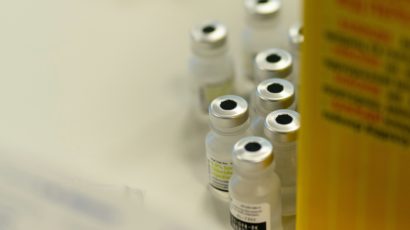Posted by Dr Michelle Wright
Tetanus is the topic up for discussion in this week’s Health Matters. Dr Michelle explains what symptoms it can cause and when, and how often, you should be vaccinated.
What is Tetanus and how can it get into the body?
Tetanus is an infection caused by the bacterium Clostridium tetani that lives pretty much everywhere, particularly in soil and dirt from outside. It can get into the body through a break in the skin and might be a large, obvious skin wound. It can also be a tiny cut, or just a prick from a thorn on a rosebush whilst gardening.
The bacterium produces a toxin inside the body which can attack the nervous system and muscles. This leads to the classic symptoms: the first being stiffness and spasm of the muscles around the jaw. This stiffness can then spread to involve other muscles including the neck, the muscles of breathing around the chest wall, and the muscles in the arms and legs. Tetanus can lead to swallowing and breathing difficulties, and it can be fatal if it’s not treated.
The good news is that we don’t see tetanus very often these days because of the possibility of vaccinating against it. Those who tend to contract tetanus now are:
- People who’ve never been vaccinated, or who haven’t completed their vaccination schedule.
- Or intravenous drug users who can have lots of dirty skin wounds.
What is the vaccination schedule in Switzerland?
Vaccination offers at least 98% protection against infection. However, this protection doesn’t last forever, so regular booster vaccinations are required.
In Switzerland, 2 doses of tetanus vaccine are given during the standard immunisations for babies. This is usually at 2 and 4 months. Then there’s a 3rd dose given at 12 months, and a 4th dose between the ages of 4 and 7. These first 4 doses of the tetanus vaccine are given combined with other vaccines to avoid too many injections at once.
Another dose of tetanus is recommended for adolescents between the ages of 11 and 15. A further booster advised when you reach 25. Adults need a tetanus booster every 20 years between the ages of 25 and 64. And from age 65, every 10 years because the immune system tends to weaken with age.
Sometimes more frequent vaccination with tetanus is suggested, for example for people travelling to various high-risk countries, those with immune system deficiencies, or if you have a particularly dirty skin wound because carries a higher chance of tetanus infection.
What should I do now?
My advice is that if you have any doubts about your tetanus vaccination status, check your records, and go to see your doctor if you think anything is incomplete, or if you have any questions.
And if you do have a particularly dirty skin wound, discuss with your doctor (or your local Accident and Emergency Department) whether a booster dose of tetanus vaccine is needed – even if you’re still within the recommended time frame since your last dose. The sooner this discussion takes place, the better.
For more information and the full recommended immunisation schedule in Switzerland, go to the website infovac.ch which is available in French, German, and Italian.





